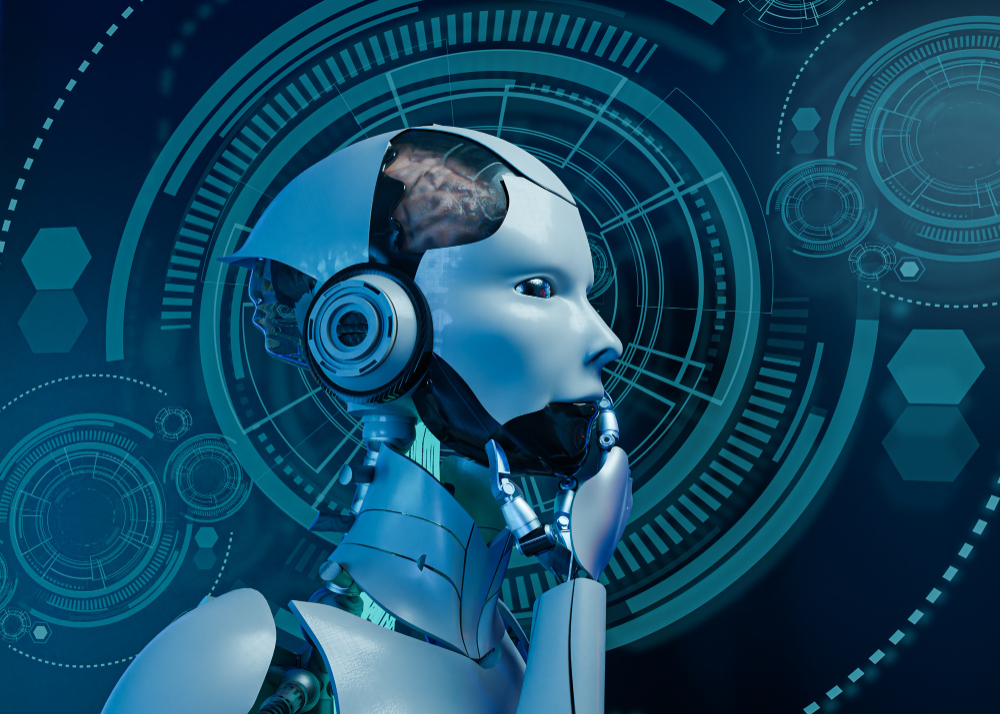Boardroom to Backend: AI Copilots Reshape the Business Landscape

Strong 8k brings an ultra-HD IPTV experience to your living room and your pocket.
The digital transformation of business is no longer a trend—it's a necessity. But while much attention has been paid to automation, cloud computing, and big data, a new paradigm is now accelerating change across every layer of the enterprise: the AI Copilot. From C-suite decision-making to frontline operations, AI copilots are redefining how businesses operate, compete, and grow.
These AI-powered assistants are not merely tools or chatbots. They are context-aware, learning-driven collaborators that integrate into workflows, understand organizational goals, and help execute complex tasks. Whether it’s summarizing market trends for the boardroom or automating repetitive processes in the backend, AI copilots are shaping a more intelligent, agile, and responsive business environment.
Let’s explore how these copilots are making an impact—from strategy to operations, from vision to execution.
What Are AI Copilots?
An AI Copilot is an intelligent digital assistant powered by generative AI and large language models (LLMs), designed to support and augment human work. These copilots can analyze data, understand context, draft communications, write code, automate decisions, and even suggest strategic actions.
They are embedded in applications that professionals use daily—CRMs, ERPs, project management tools, collaboration platforms, and productivity software. Unlike conventional automation, copilots can reason, learn from behavior, and adapt to user needs.
Instead of replacing humans, AI copilots act as thought partners, amplifying the capabilities of individuals and teams across departments.
Boardroom: Strategic Decision-Making Reinvented
Faster, Smarter, Data-Driven Leadership
At the executive level, strategy has historically been built on delayed reports, fragmented insights, and subjective interpretation. With AI copilots, leaders now have real-time access to strategic intelligence.
A CEO can ask, “What are the top three revenue risks this quarter?” and receive a synthesized answer from financial, sales, and market data.
A CFO can prompt the copilot to model various budget reallocation scenarios.
A CMO can analyze campaign ROI instantly and adjust strategy mid-flight.
Copilots translate complex data into clear, actionable insights—minimizing guesswork and accelerating decision-making.
Scenario Planning and Forecasting
Beyond current-state analysis, copilots can simulate possible futures. By using predictive models and business logic, they can project outcomes, highlight risk factors, and recommend mitigation strategies.
This enables executives to shift from reactive management to proactive leadership.
Middle Management: Aligning Strategy with Execution
Operational Intelligence at Your Fingertips
For department heads and team leads, AI copilots are a command center for operational oversight. Managers no longer need to wait for analysts to prepare dashboards or reports—they can simply ask their copilot:
“Which projects are at risk of missing deadlines?”
“What’s the current sentiment in customer service tickets?”
“How does last month’s team productivity compare year-over-year?”
These insights help mid-level managers spot issues early, allocate resources wisely, and keep teams aligned with strategic goals.
Team Empowerment and Coaching
Managers can also use copilots to support team development. For instance, a sales manager can review call transcripts and receive coaching suggestions for team members. An HR manager can identify burnout signals based on work patterns and engagement data.
With copilots handling much of the data work, managers can focus on leadership, culture, and growth—the human aspects that drive performance.
Frontline Teams: Empowering Everyday Execution
Marketing and Sales
AI copilots are transforming how customer-facing teams work. In marketing, copilots help:
Generate content across channels (social, email, blogs, etc.)
Optimize campaign timing and targeting
Analyze engagement metrics and suggest adjustments
In sales, copilots can:
Prioritize leads using predictive scoring
Draft personalized outreach emails
Summarize customer interactions from CRM data
These capabilities lead to more personalized customer experiences, higher conversion rates, and faster go-to-market cycles.
Customer Support
Customer service teams benefit immensely from AI copilots that:
Suggest responses during live chats
Auto-detect customer intent and sentiment
Route tickets to the right agent or escalate when needed
With AI handling routine interactions, human agents can focus on complex cases and empathetic resolution—boosting both efficiency and satisfaction.
Product and Engineering
In technical teams, AI copilots support:
Code generation and debugging
API documentation
Product requirement drafting
User feedback analysis
Tools like GitHub Copilot and Notion AI are already streamlining software development cycles. Product teams are using copilots to bridge customer insights with technical implementation faster than ever before.
Backend Operations: The Intelligent Enterprise Core
Finance and Procurement
AI copilots assist finance teams by:
Automating financial reporting
Detecting anomalies in transactions
Forecasting revenue and expenses
Suggesting vendor renegotiation opportunities
In procurement, copilots analyze supply chain dynamics, identify bottlenecks, and help optimize inventory—ensuring cost control and supply resilience.
HR and Talent Management
HR teams use copilots to:
Screen resumes and rank applicants
Analyze employee engagement surveys
Generate personalized onboarding plans
Predict attrition risks
This turns HR into a data-informed, strategic function, helping companies attract and retain top talent in competitive markets.
IT and Infrastructure
In IT, AI copilots monitor systems, suggest patches, automate incident responses, and even assist with cybersecurity defense. As digital infrastructure grows in complexity, copilots act as a digital twin for IT teams, ensuring uptime, security, and scalability.
Cross-Functional Impact: Collaboration Without Friction
Perhaps the most transformative effect of AI copilots is their ability to break down silos. By standardizing access to information and recommendations across departments, copilots help:
Align goals and timelines
Coordinate interdepartmental projects
Share learnings and performance data
A product manager, marketer, and sales leader can now make decisions in one shared digital workspace, guided by a unified copilot that understands each of their goals and constraints.
This enhances organizational coherence and agility, essential traits for modern businesses facing constant change.
Challenges and Considerations
Accuracy and Trust
AI copilots are powerful, but not infallible. Hallucinations (plausible-sounding but incorrect outputs), data misinterpretation, or biased recommendations can still occur. Businesses must implement:
Review layers and approvals for high-stakes actions
Training and education for employees to spot errors
Transparent sourcing of copilot outputs and recommendations
Trust is earned when AI becomes predictable, explainable, and accountable.
Data Privacy and Compliance
Since copilots often handle sensitive information—financial records, HR data, customer history—data security and compliance must be top priorities. Businesses should:
Choose copilots that comply with regulations like GDPR and HIPAA
Ensure data encryption and role-based access
Monitor AI usage through governance dashboards
Without these safeguards, the efficiency gains of copilots could come at the cost of security breaches or regulatory fines.
Ethical Use and Human Oversight
AI copilots should enhance, not replace human agency. For instance:
Should a copilot auto-reject job applicants based on a score?
Should an AI-generated legal document be submitted without legal review?
Businesses must define ethical frameworks and boundaries, ensuring AI copilots reflect company values and societal norms.
The Road Ahead: AI-Native Organizations
The integration of AI copilots into business processes is not a passing phase—it’s the beginning of a new operating model. In the coming years, we’ll see the rise of AI-native organizations, where:
Every employee is partnered with a personal AI copilot
Entire departments have domain-specific copilots coordinating efforts
Executives rely on AI advisors for scenario modeling and strategy
Products and services are designed with AI copilots embedded at their core
In such businesses, AI isn’t a separate initiative—it’s an invisible co-worker, woven into the company’s DNA.
Final Thoughts
From the boardroom to the backend, AI copilots are not just improving business processes—they are transforming the business itself. They represent a shift from static tools to dynamic collaborators, capable of understanding context, anticipating needs, and accelerating execution.
Organizations that embrace AI copilots today will be better equipped to adapt, compete, and lead tomorrow. They will operate with greater speed, intelligence, and resilience, tapping into the full potential of human-AI collaboration.
Note: IndiBlogHub features both user-submitted and editorial content. We do not verify third-party contributions. Read our Disclaimer and Privacy Policyfor details.







